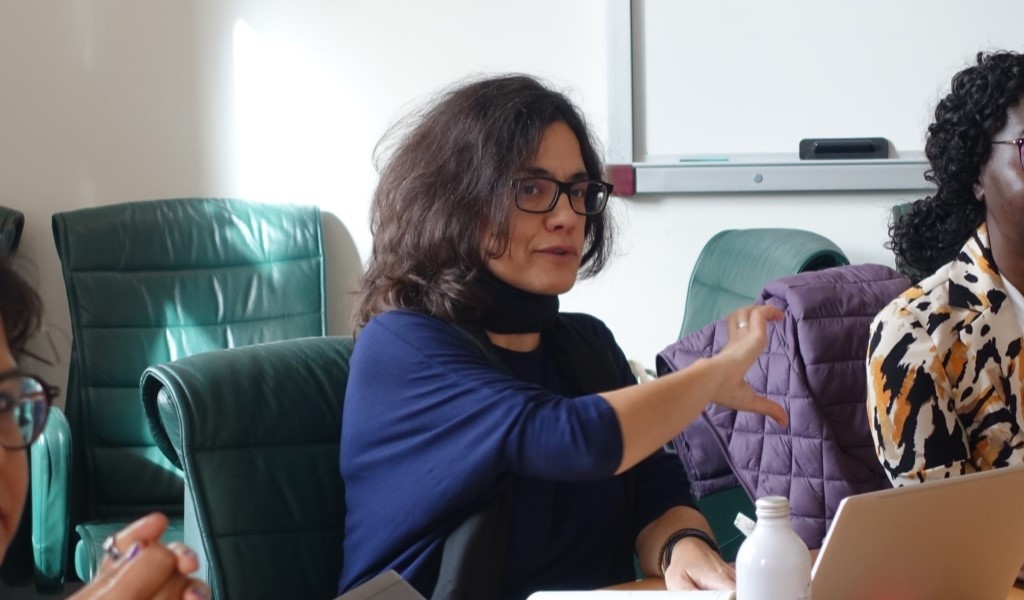Institute of Development Studies (IDS) is proud to share that Lídia Cabral, Research Fellow and founding member of the Food Equity Centre, has been selected to join the High Level Panel of Experts on Food Security and Nutrition (HLPE-FSN) of the Committee on World Food Security (CFS) for the report “Building resilient food systems”.
The report is planned to be launched at the 53rd Plenary Session of the CFS in October 2025.

The HLPE-FSN is the United Nations body for assessing the science related to global food security and nutrition and selected Cabral because of her expertise in fields of food equity, justice and sustainability, contributing to a nuanced understanding of food system vulnerabilities and resilience strategies. This appointment underscores the IDS’s commitment and in kind contribution to the CFS to support the global governance for food security and nutrition.
Lídia Cabral, Research Fellow, said:
“I’m honoured to join the writing team of this report which aims to provide policy recommendations on how food systems can be made more resilient.
“The Food Equity Centre is committed to generating knowledge about the structural inequities and vulnerabilities in food systems and seeking solutions to address them, focusing on the conditions of those marginalised.”
Lídia Cabral is a social scientist specialising in the study of policy processes and knowledge politics within agrifood systems. She brings over 20 years of experience in international development, having collaborated with a diverse array of public, private, and non-profit organizations, primarily in Sub-Saharan Africa and Brazil.
Her recent research focuses on the enduring impacts of Green Revolutions in Brazil, China, and India, examining how epic narratives of the past sustain top-down agricultural development approaches and inhibit alternative strategies. Currently, she is investigating ways to enhance both equity and sustainability in food systems. This includes exploring how agricultural wilding can integrate food justice with ecological restoration goals, as well as partnering with territorial food networks in Brazil and the UK to promote dignified access to nutritious and sustainably produced food.
As well as her role with the Food Equity Centre, Cabral is also the co-Convenor for the MA Food and Development, delivered by the University of Sussex in partnership with IDS.
Learn about the MA Food and Development
Selected through a rigorous process emphasizing scientific and technical expertise, alongside regional insights, the team embodies interdisciplinarity. Their collective experience spans health and nutrition, human rights, gender analysis, Indigenous Peoples knowledge, environmental sciences, and more, ensuring a comprehensive understanding of agricultural and food system vulnerabilities.
The team is led by Alison Blay-Palmer, UNESCO Chair and Professor at Wilfrid Laurier University Canada and renowned for her research in food systems, biodiversity and community resilience, and features Colin Anderson, Philip Antwi-Agyei, Garima Bhalla, Lídia Cabral, Francisco Javier Espinosa Garcia, Tomaso Ferrando, Isabel Madzorera, Tammara Soma, Monika Zurek, Paola Termine (Secretariat), Johanna Wilkes (Research Assistant).
More information is available at https://www.fao.org/cfs/cfs-hlpe/insights/news-insights/news-detail/new-hlpe-fsn-drafting-team-on-building-resilient-food-systems/en
